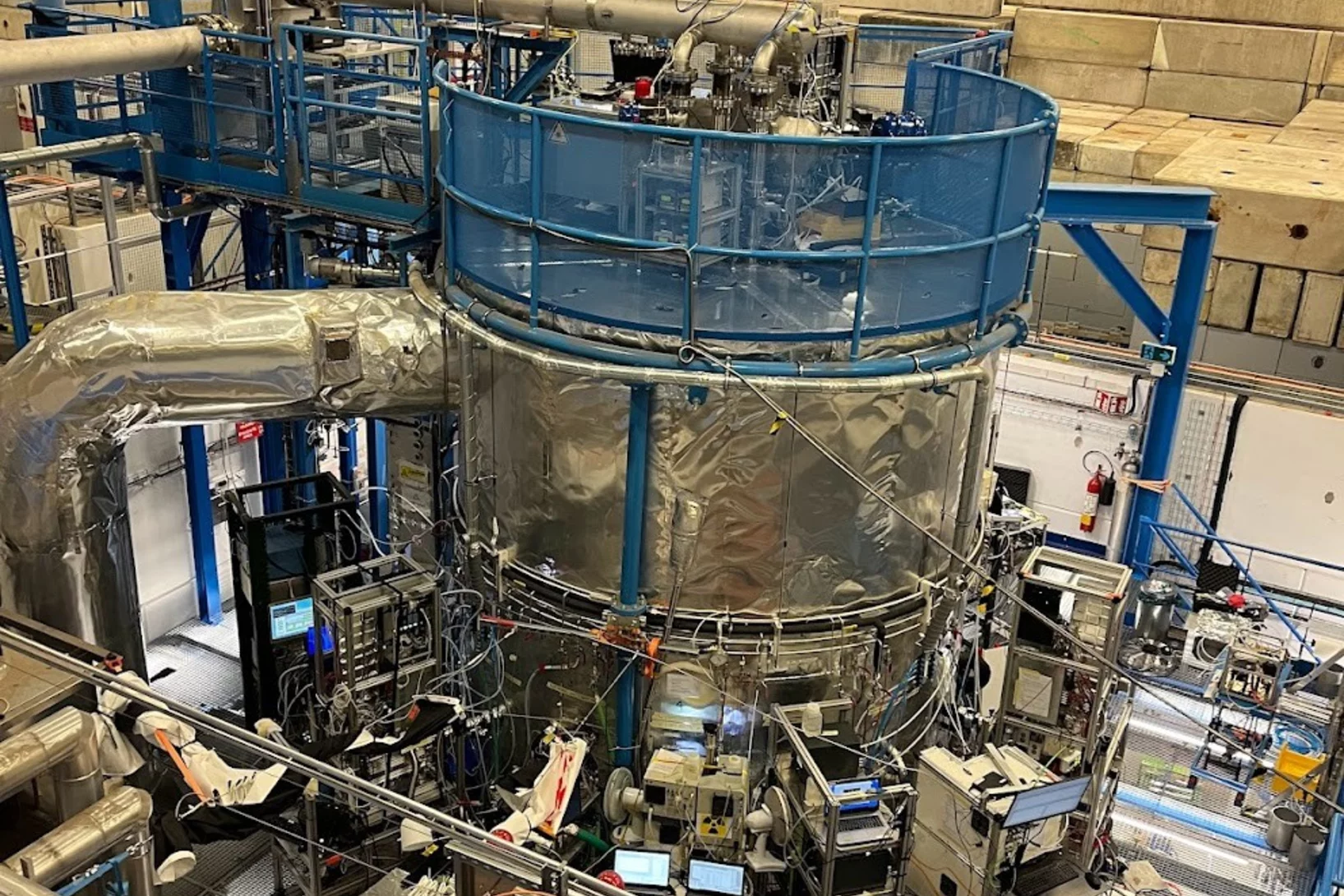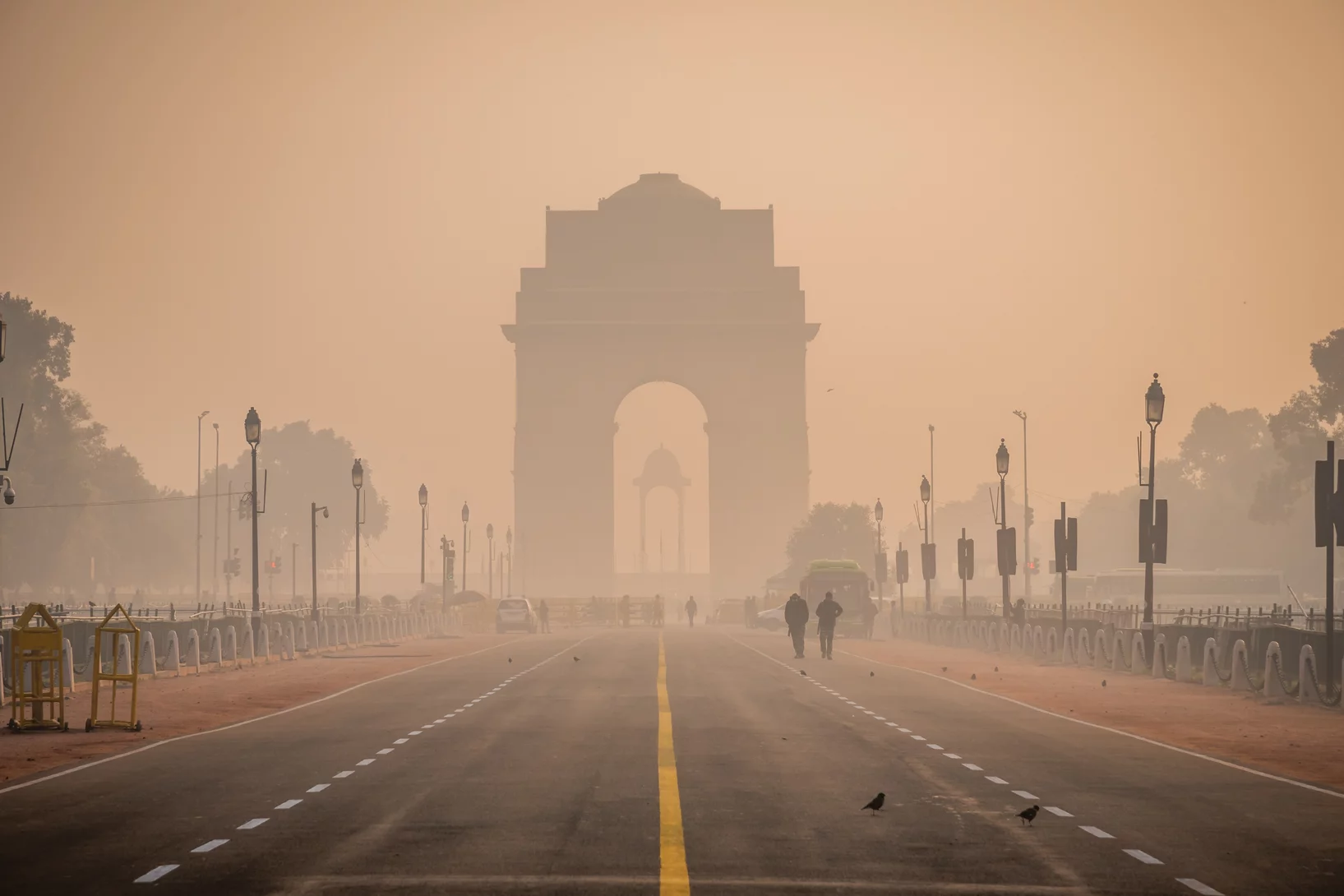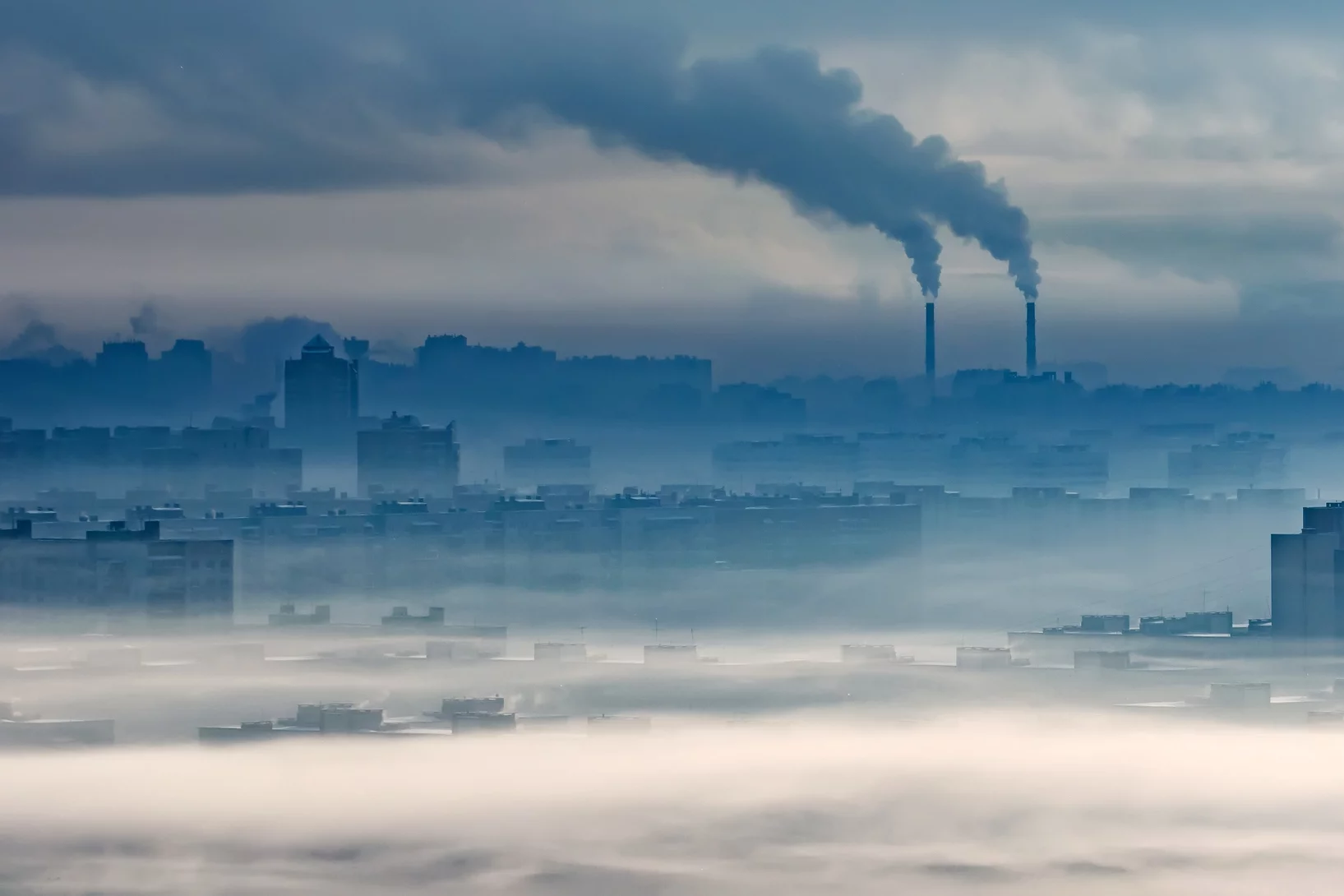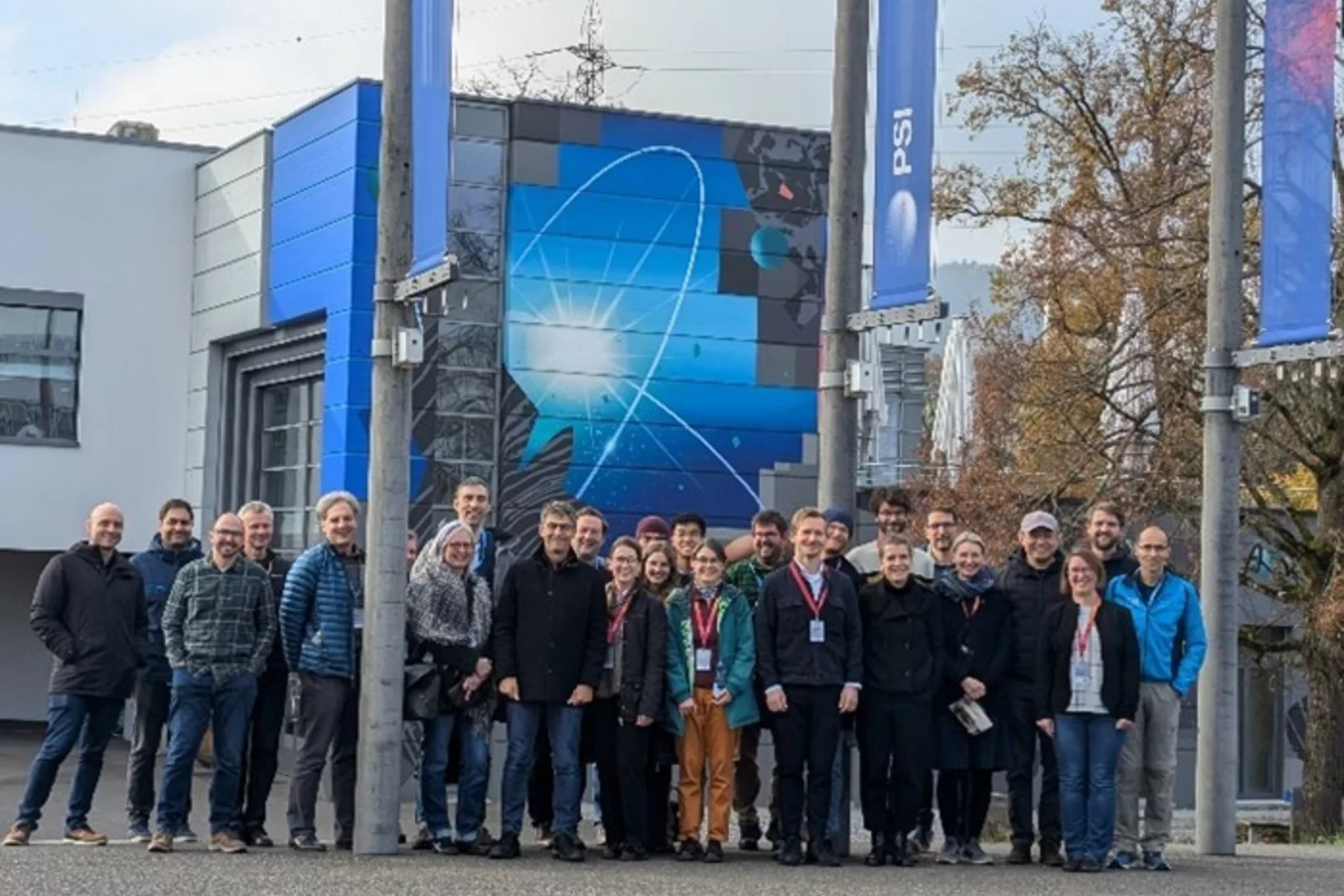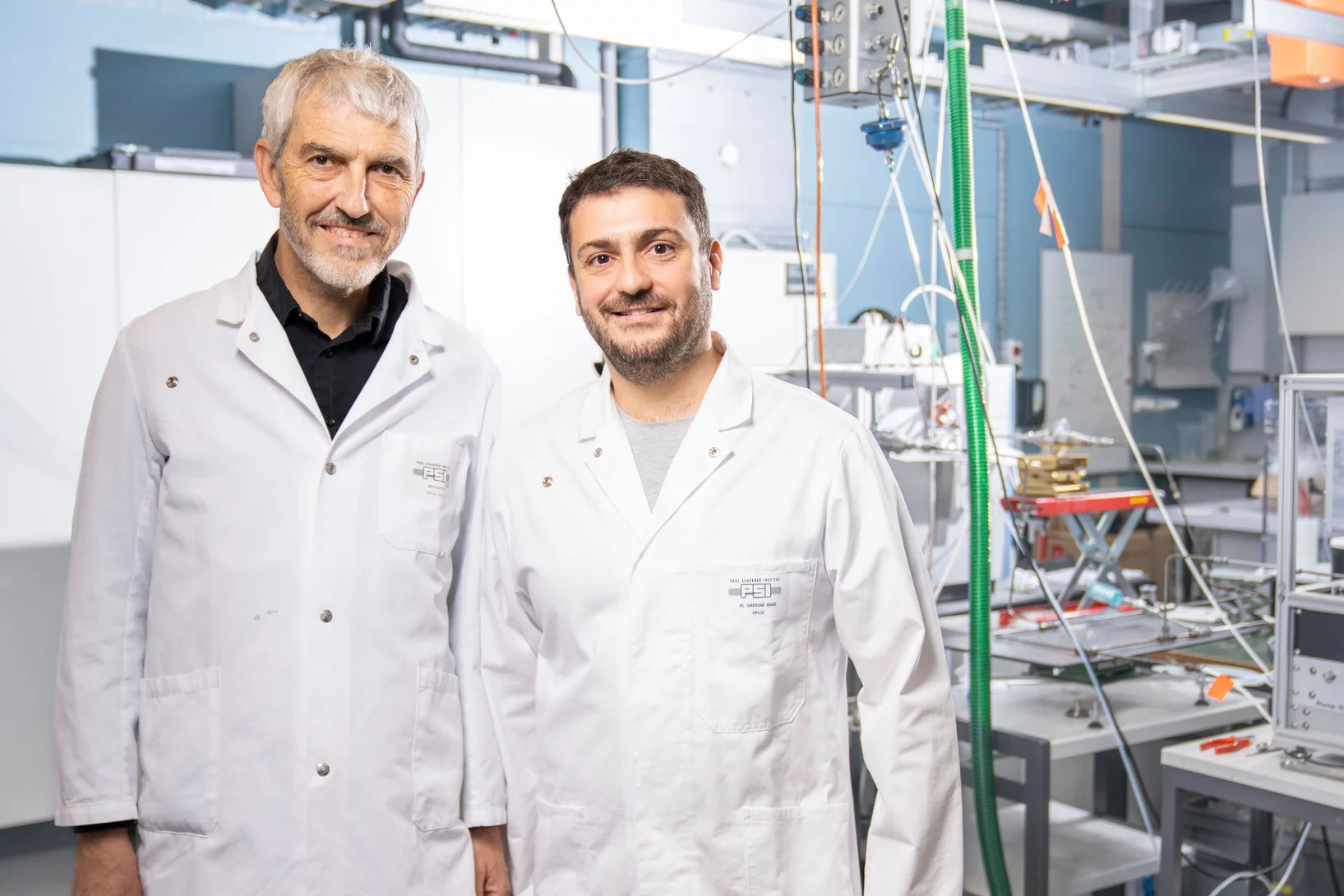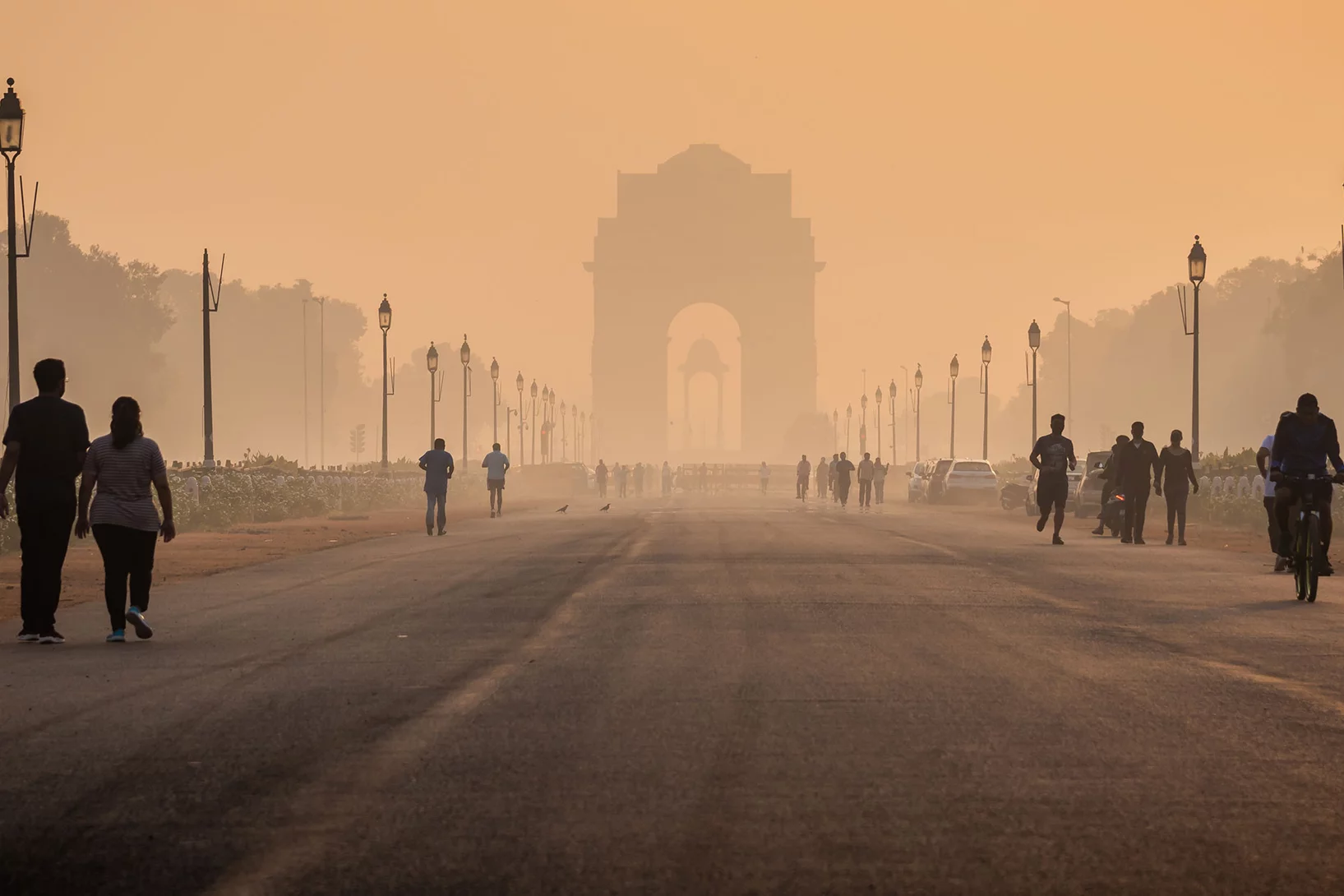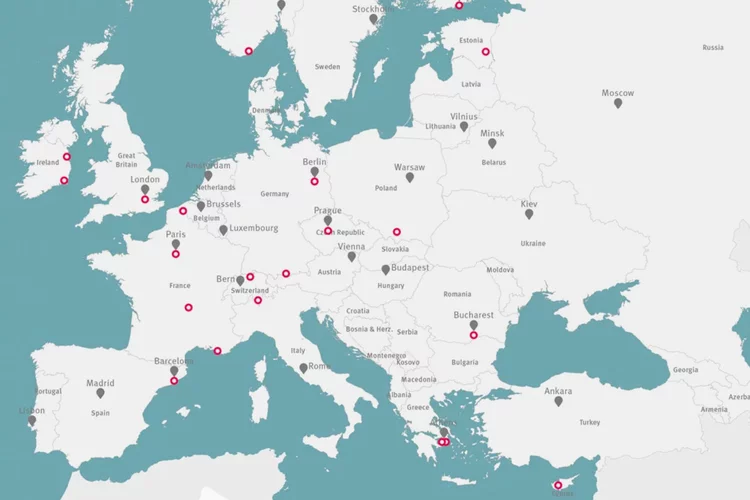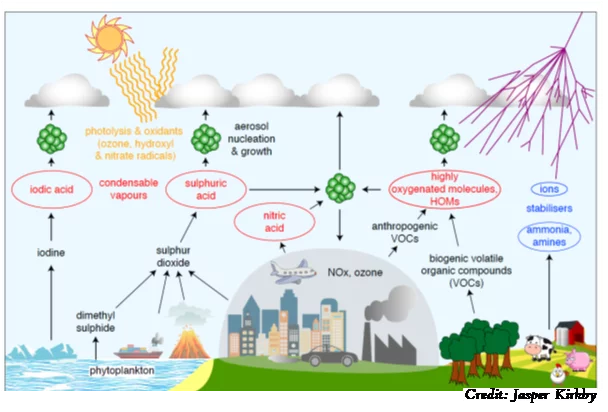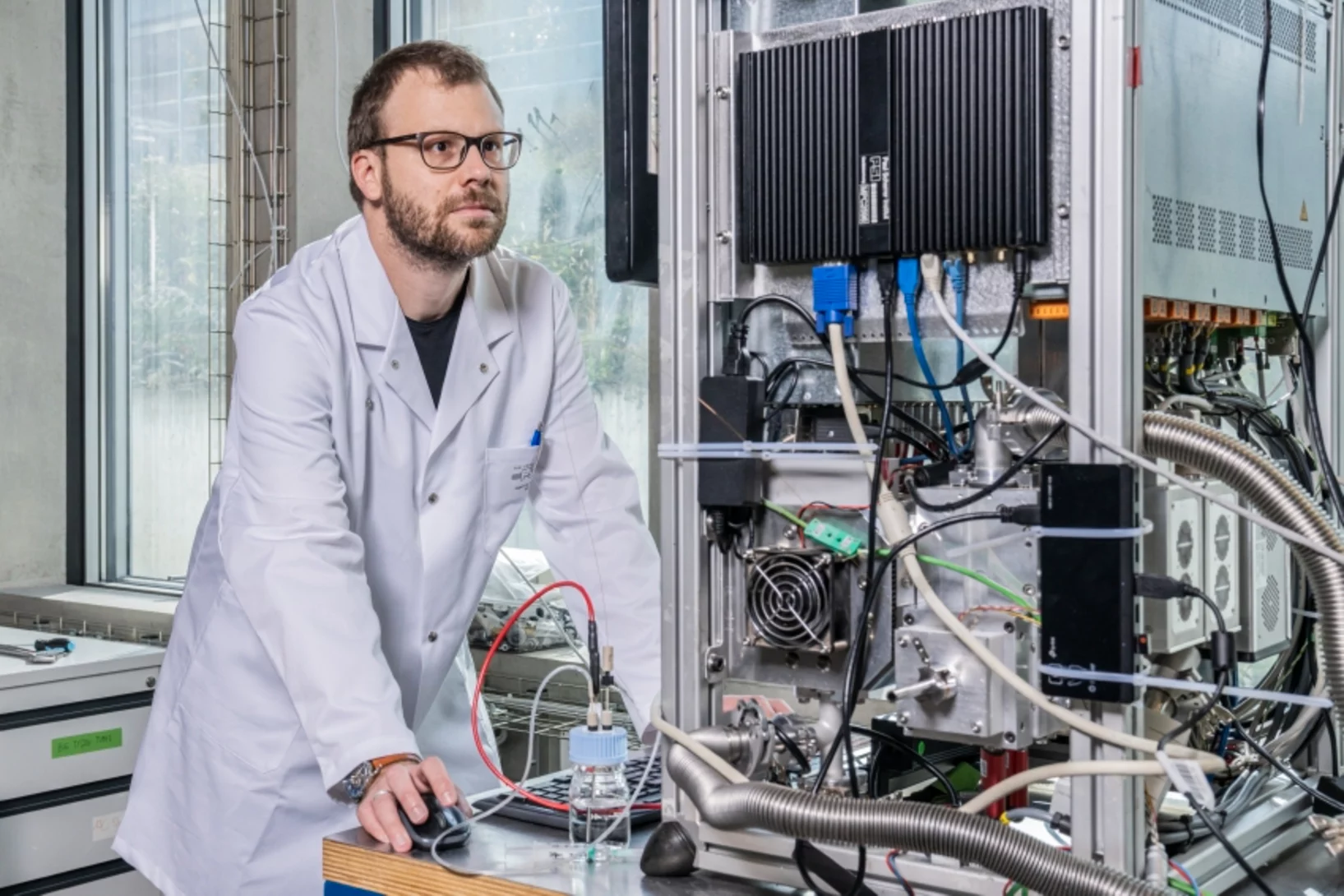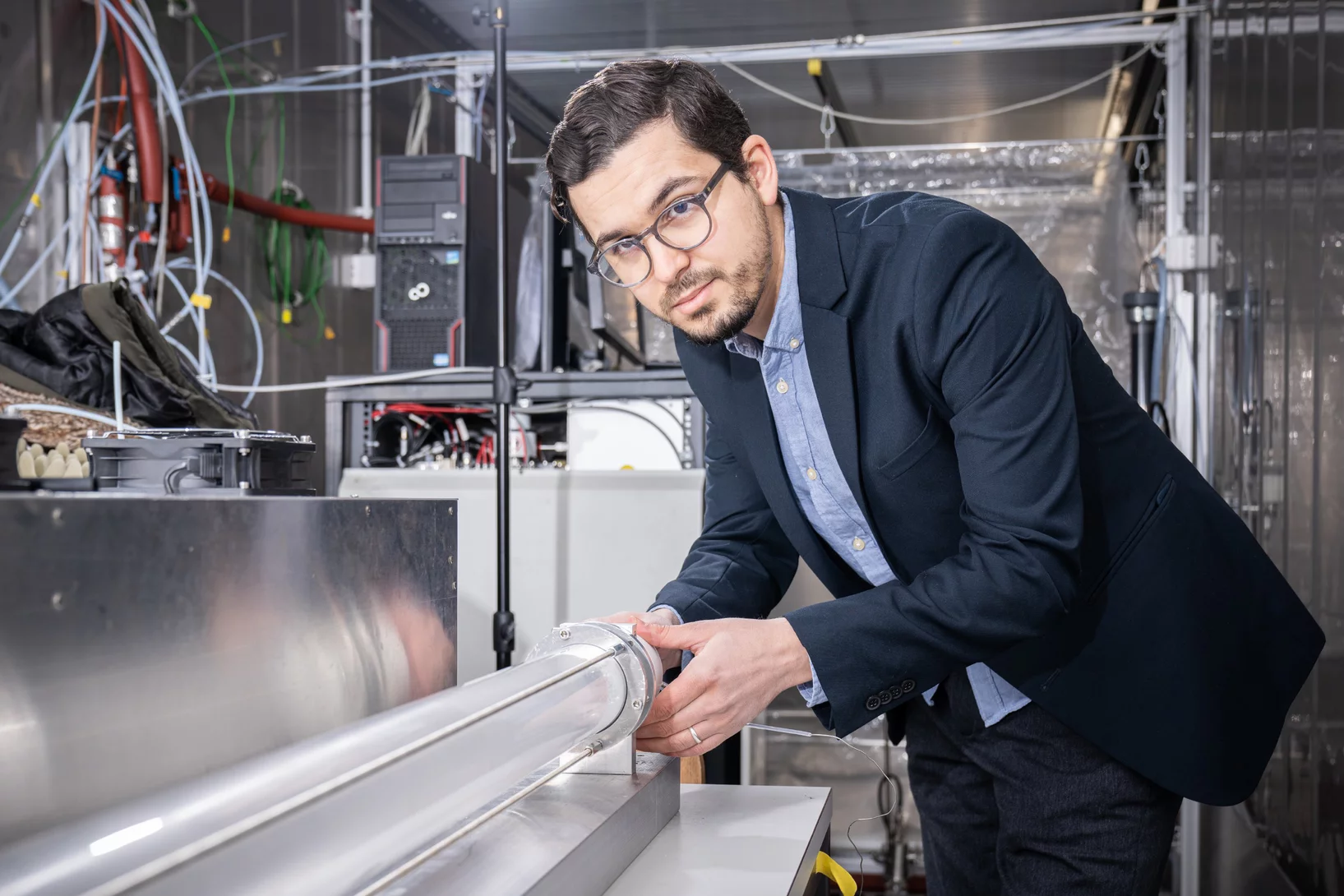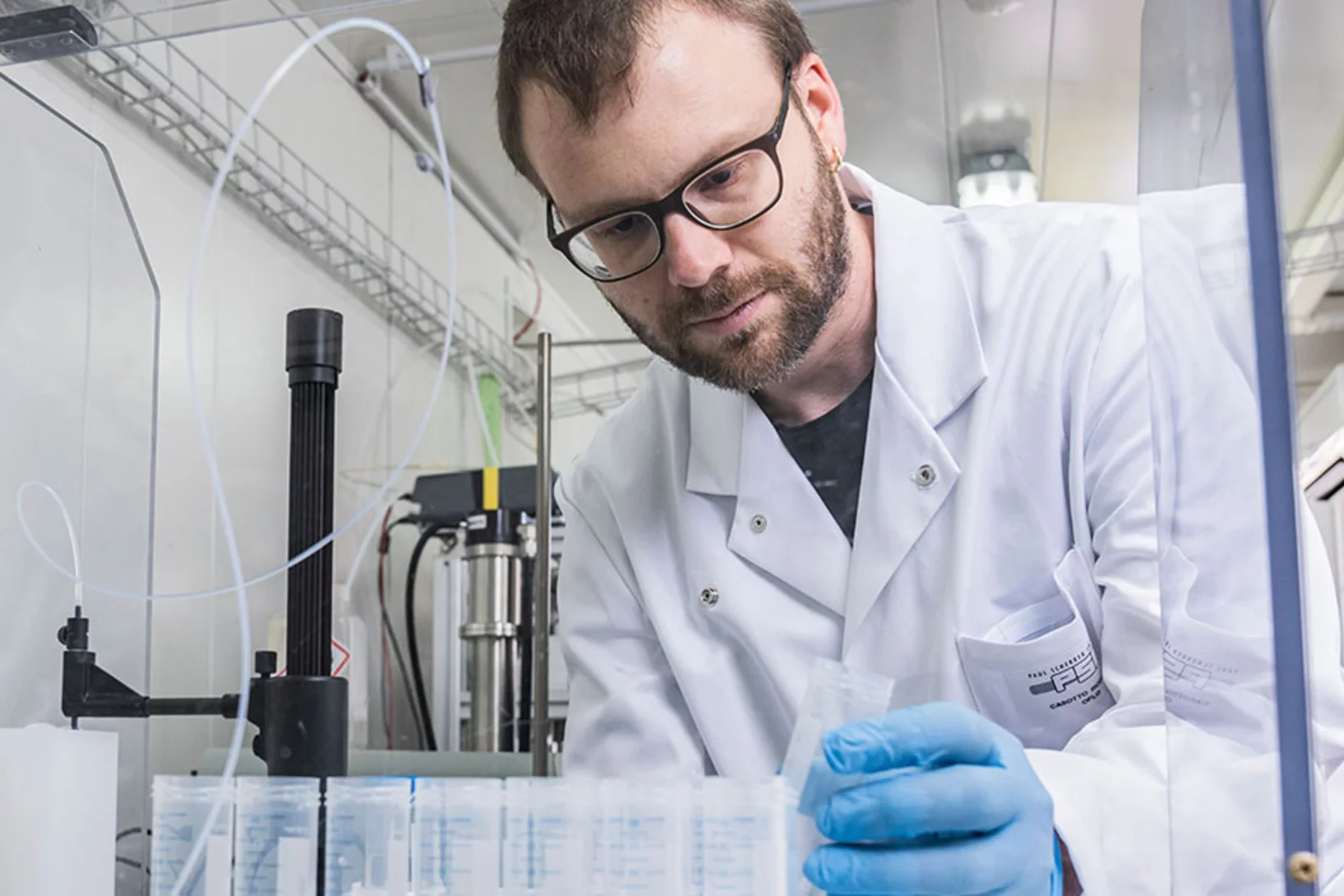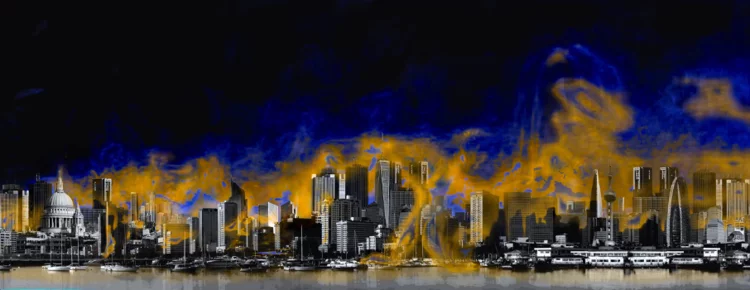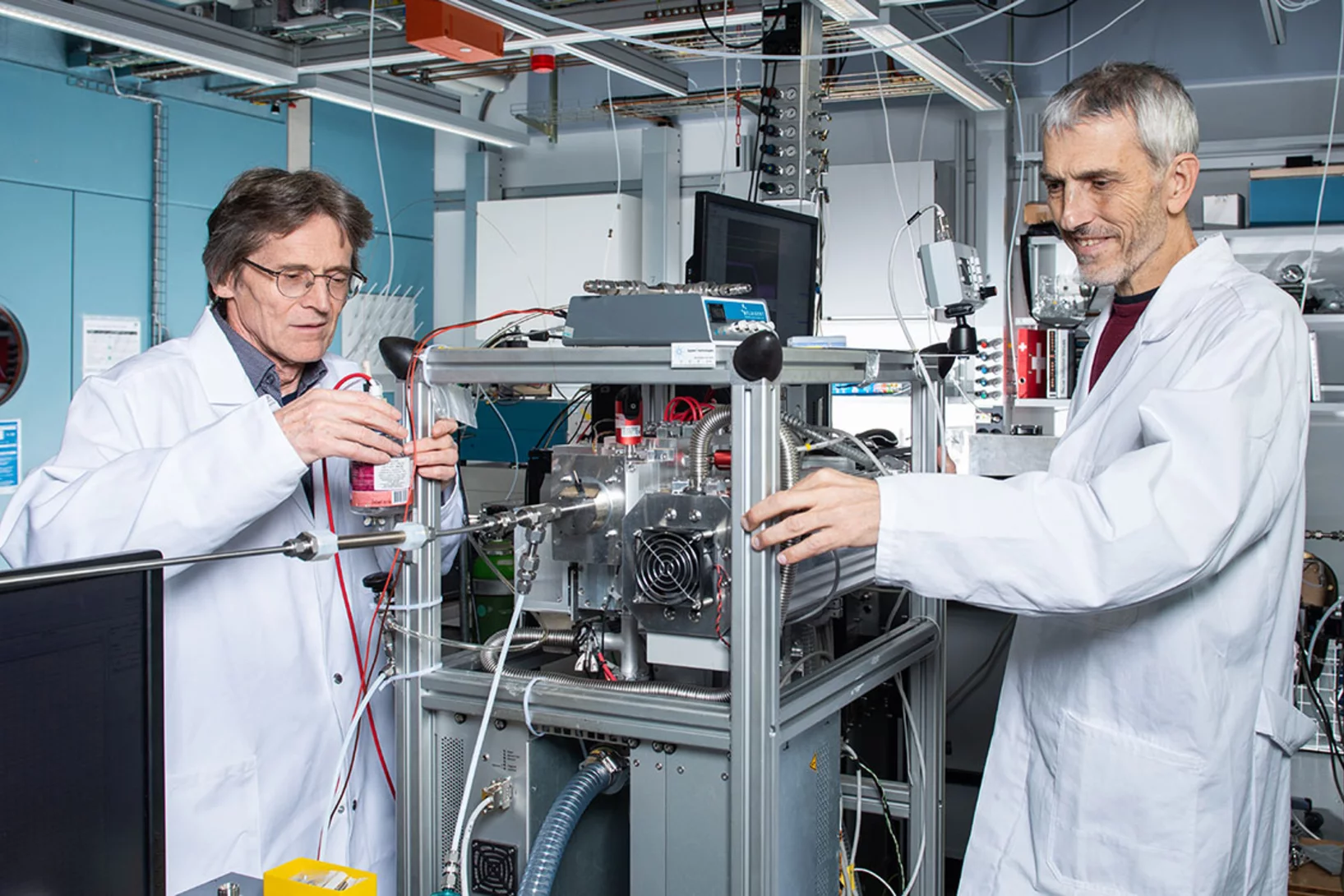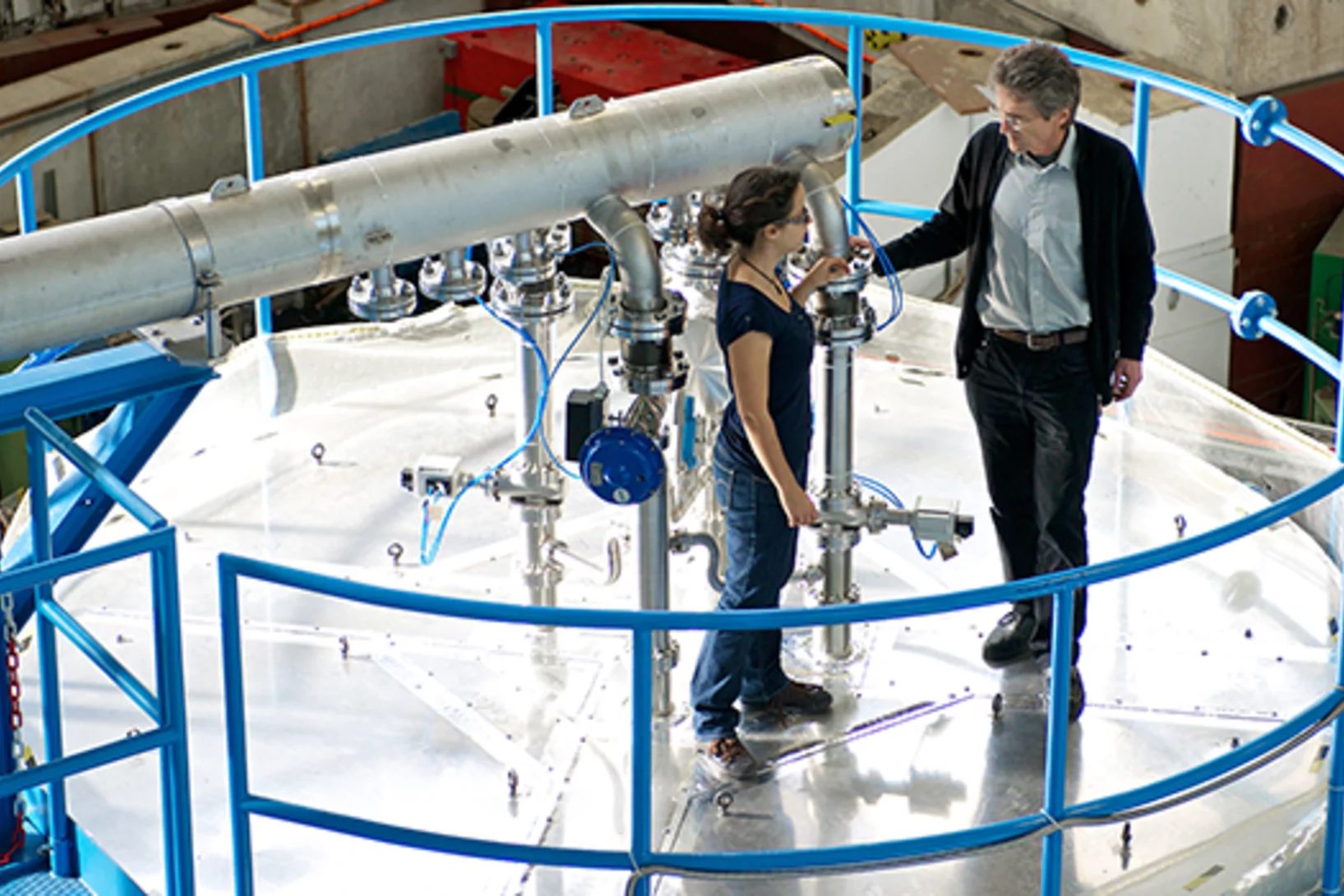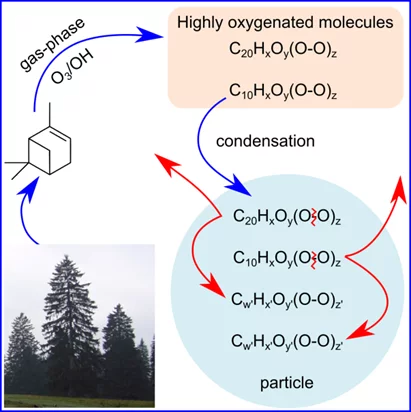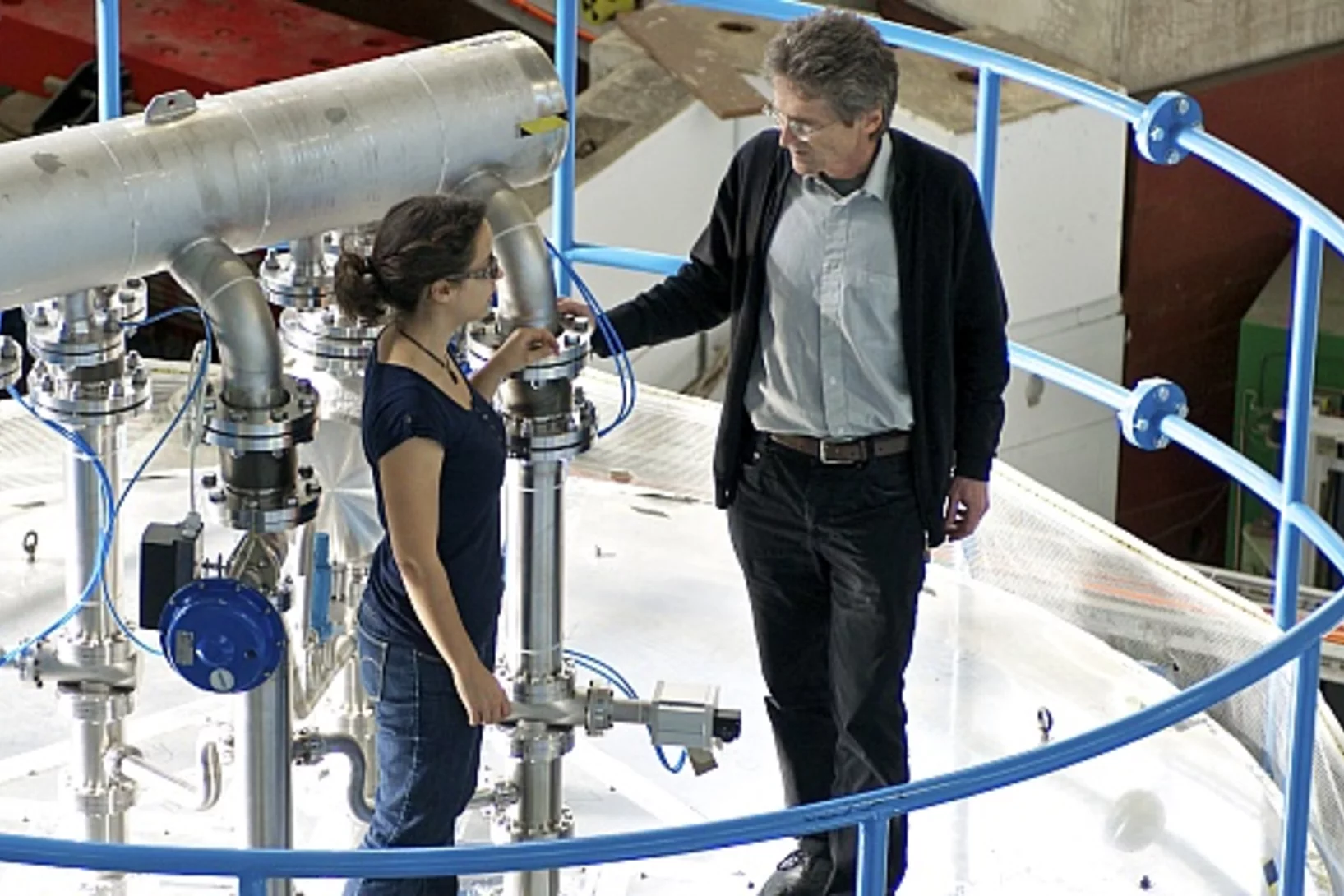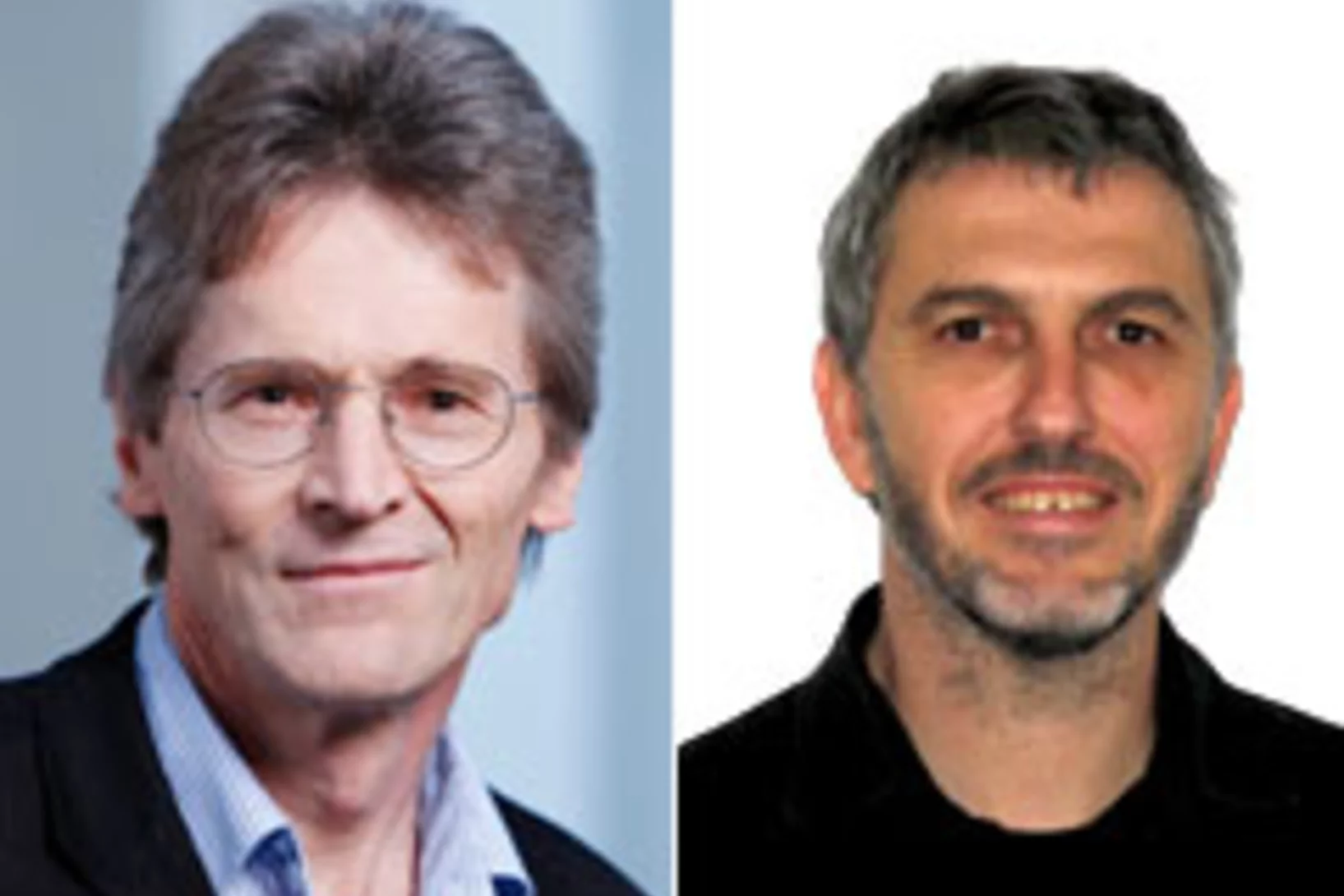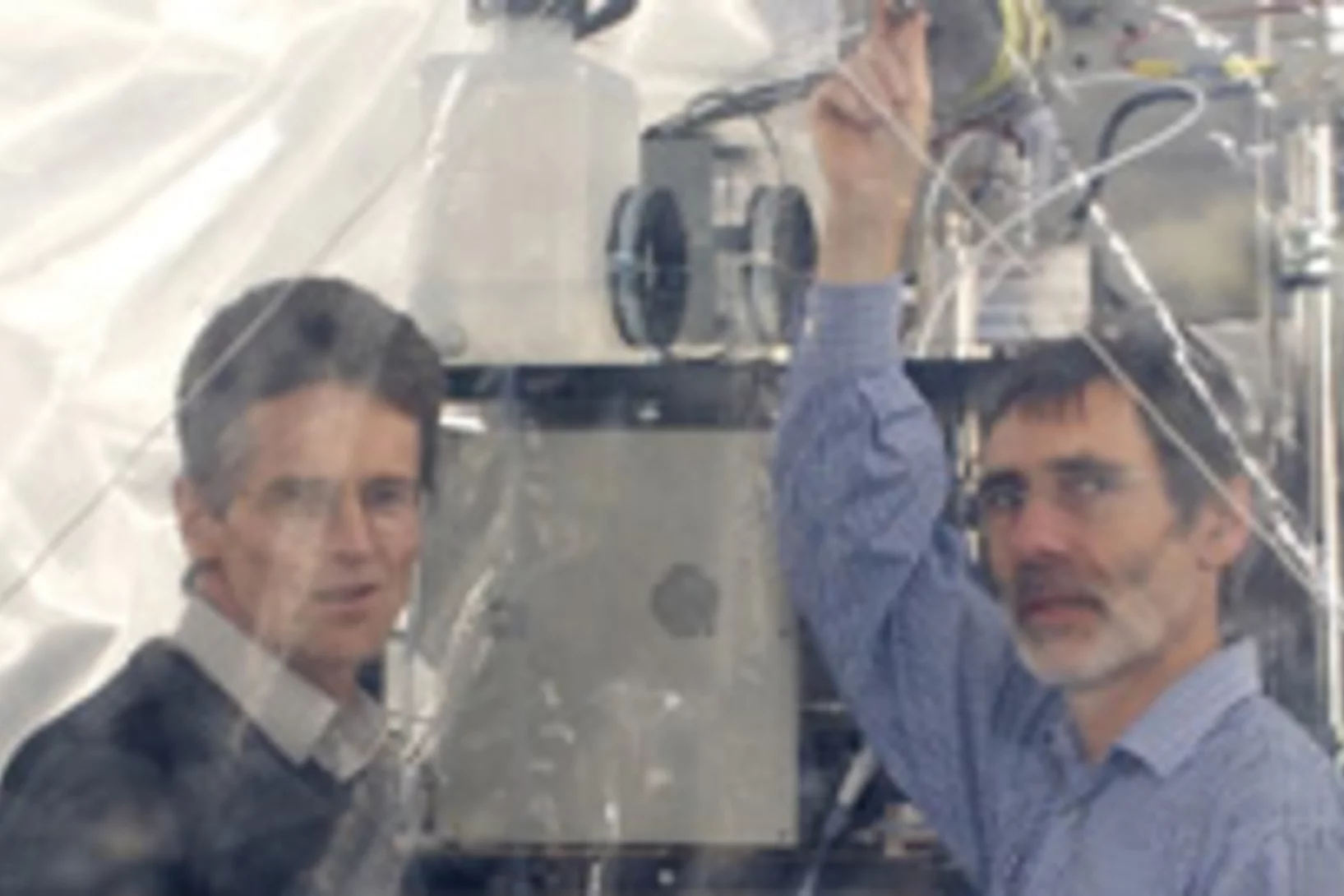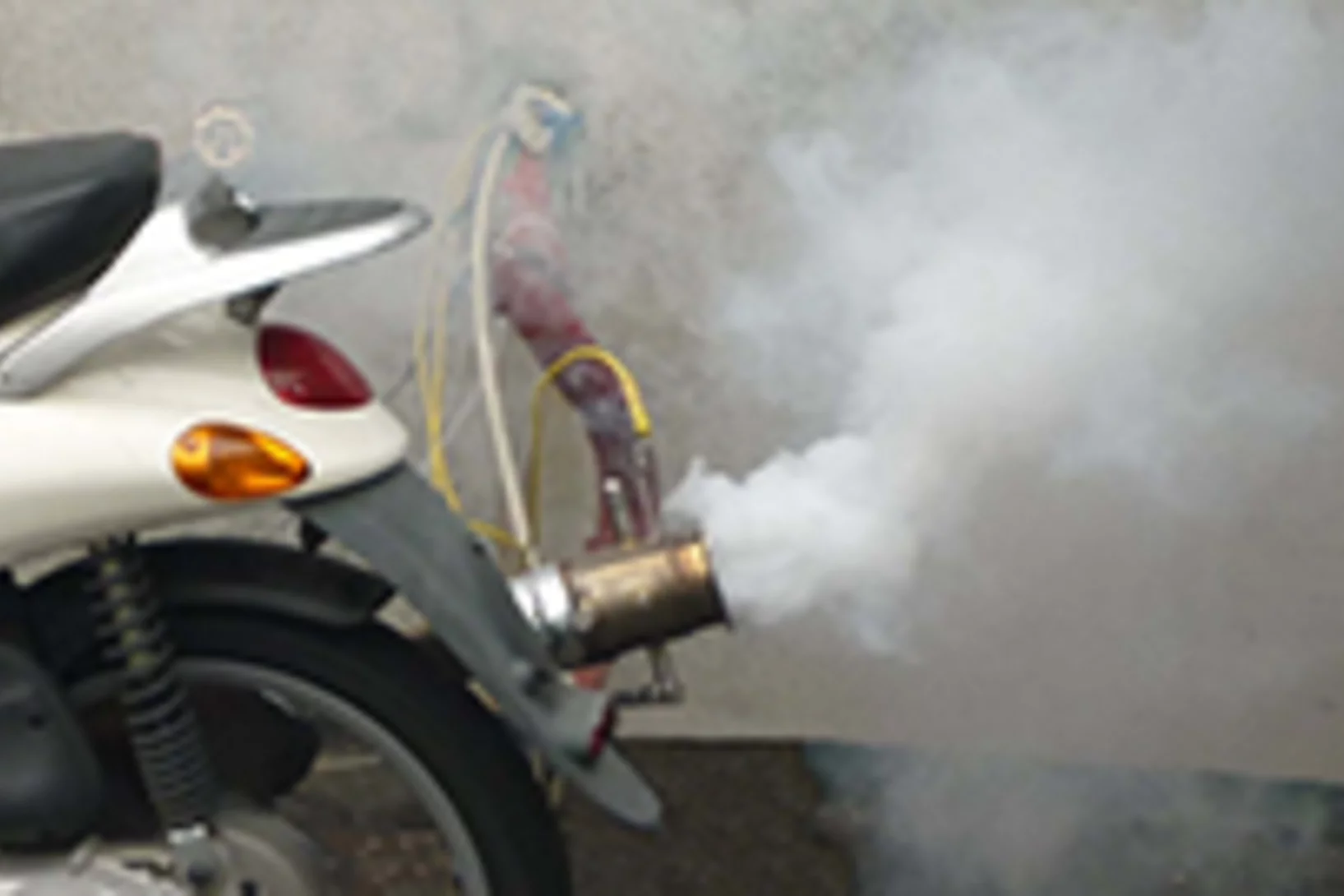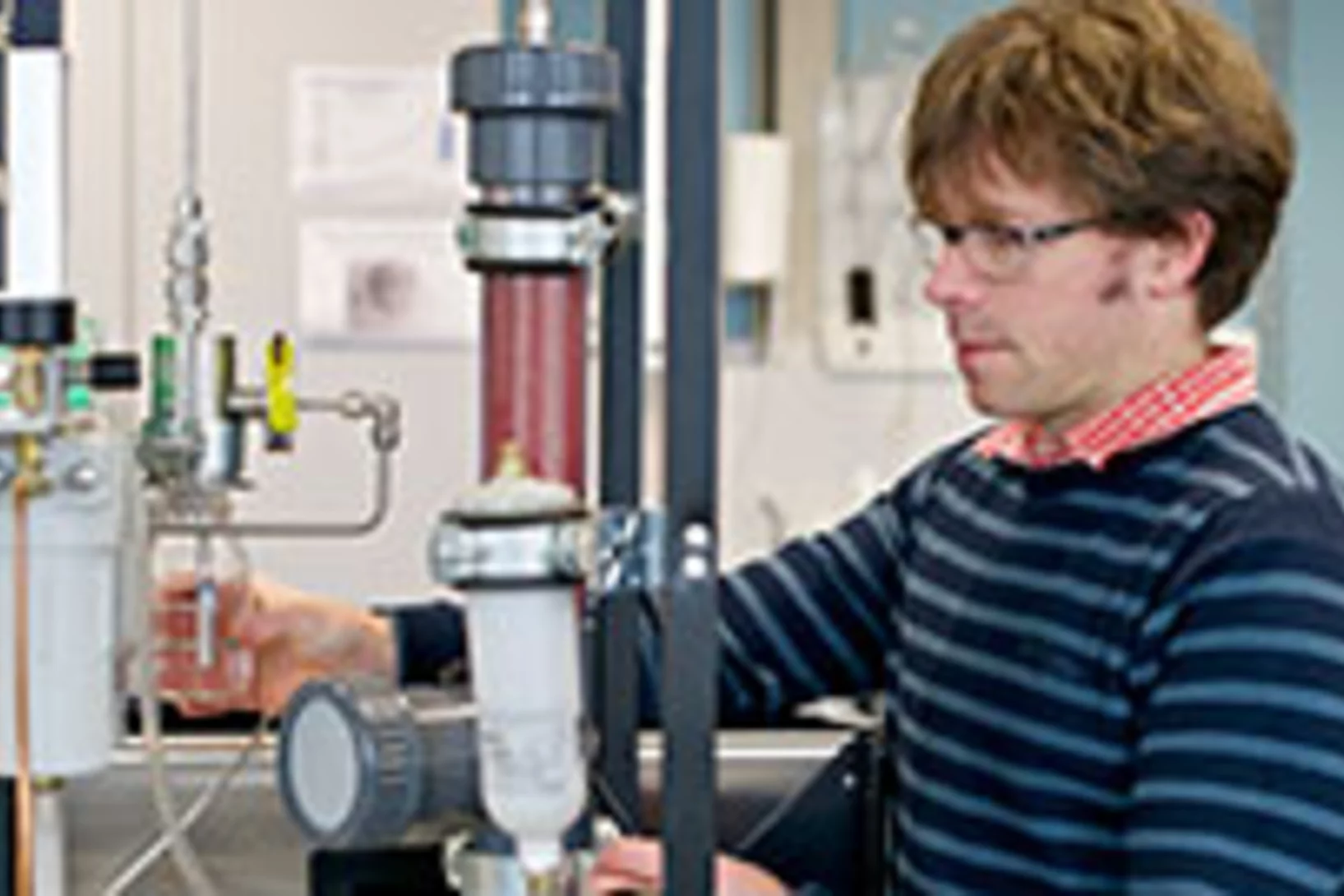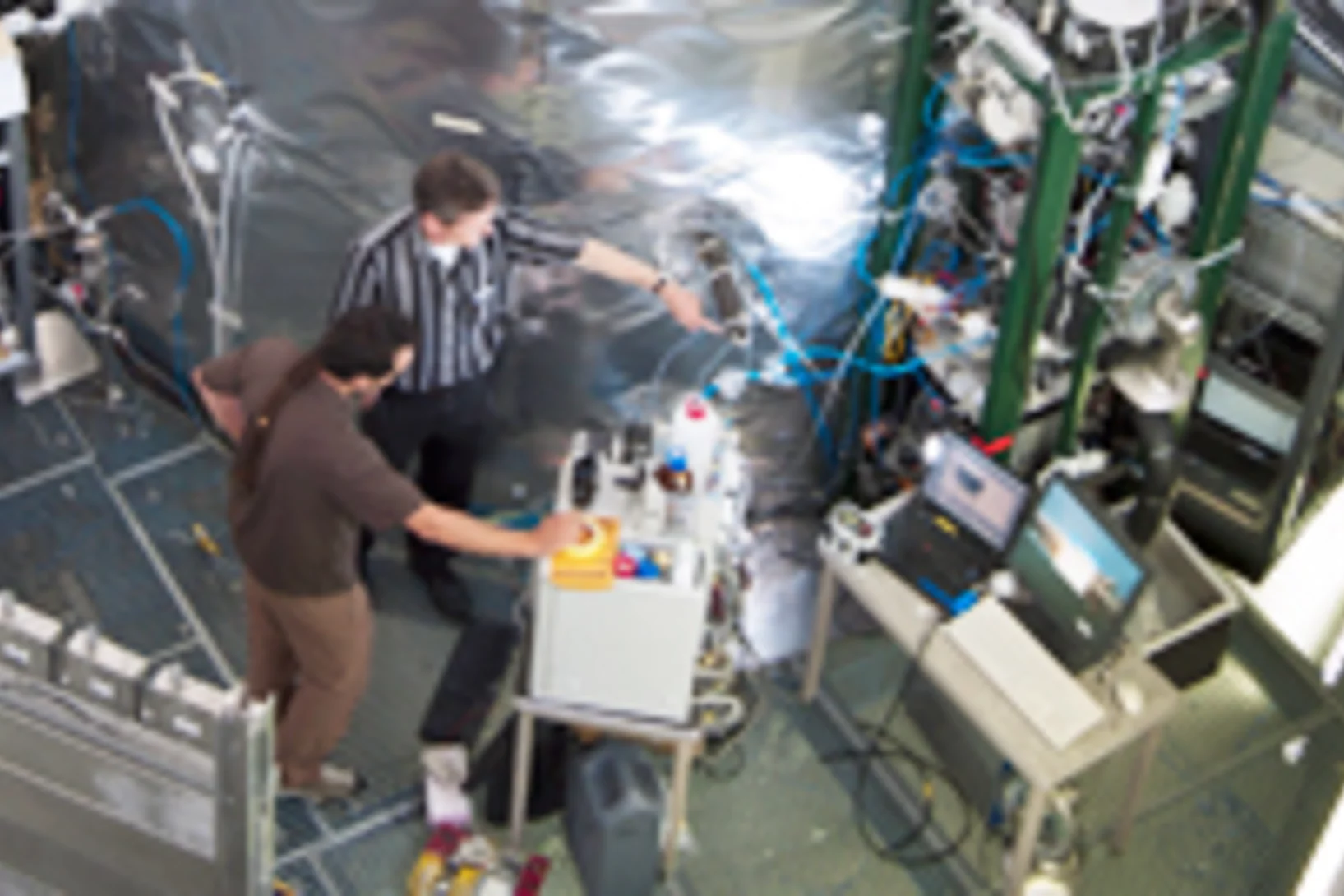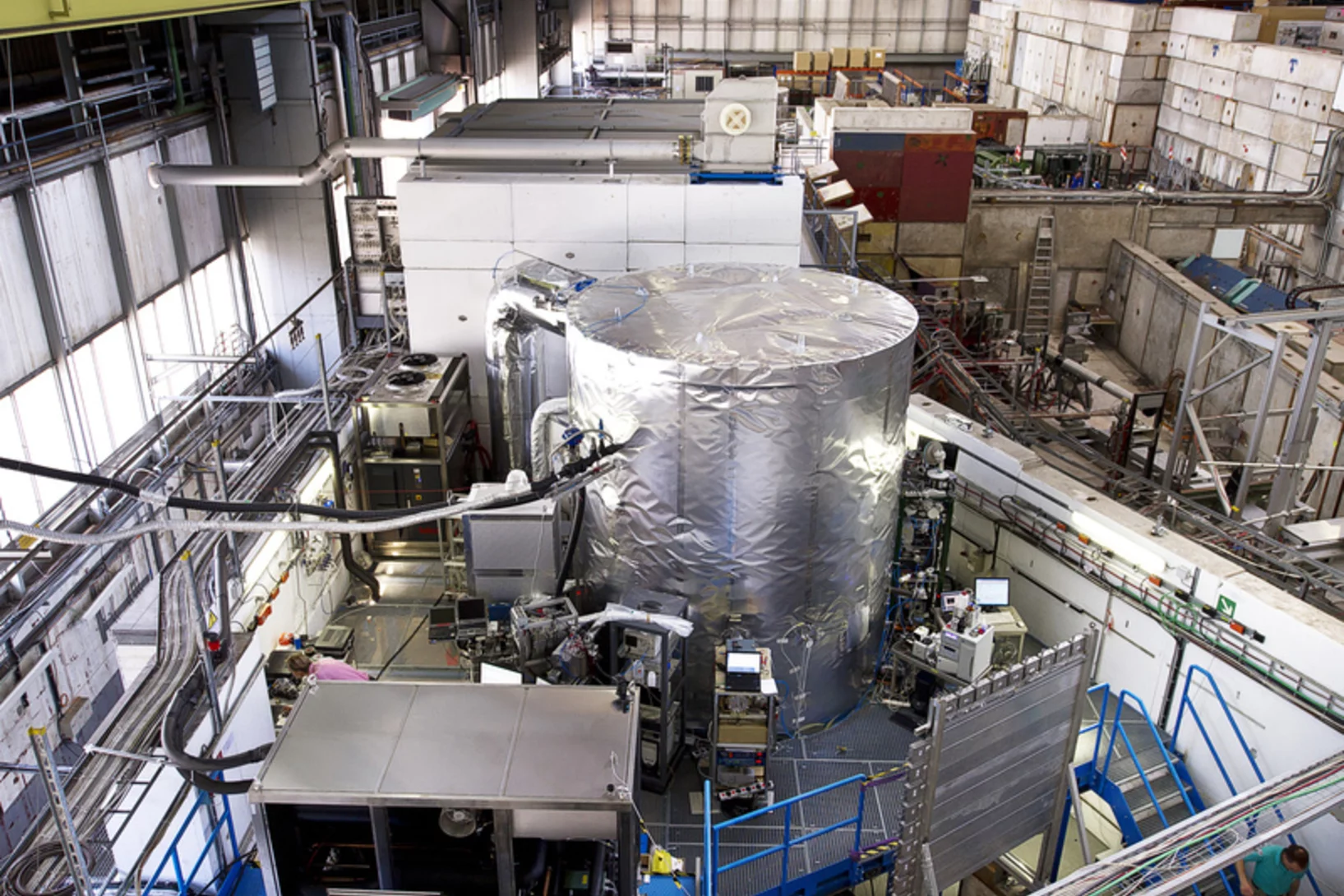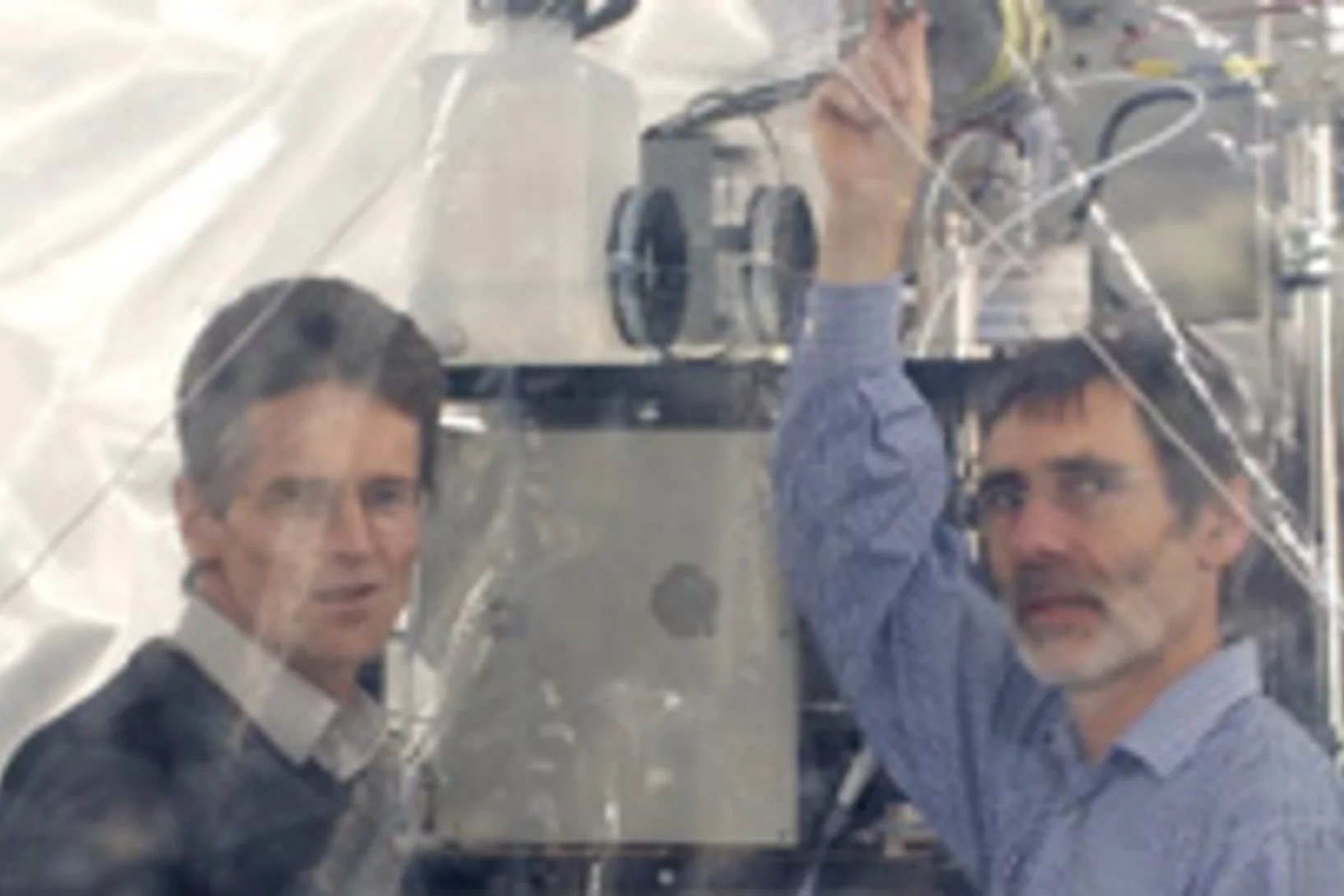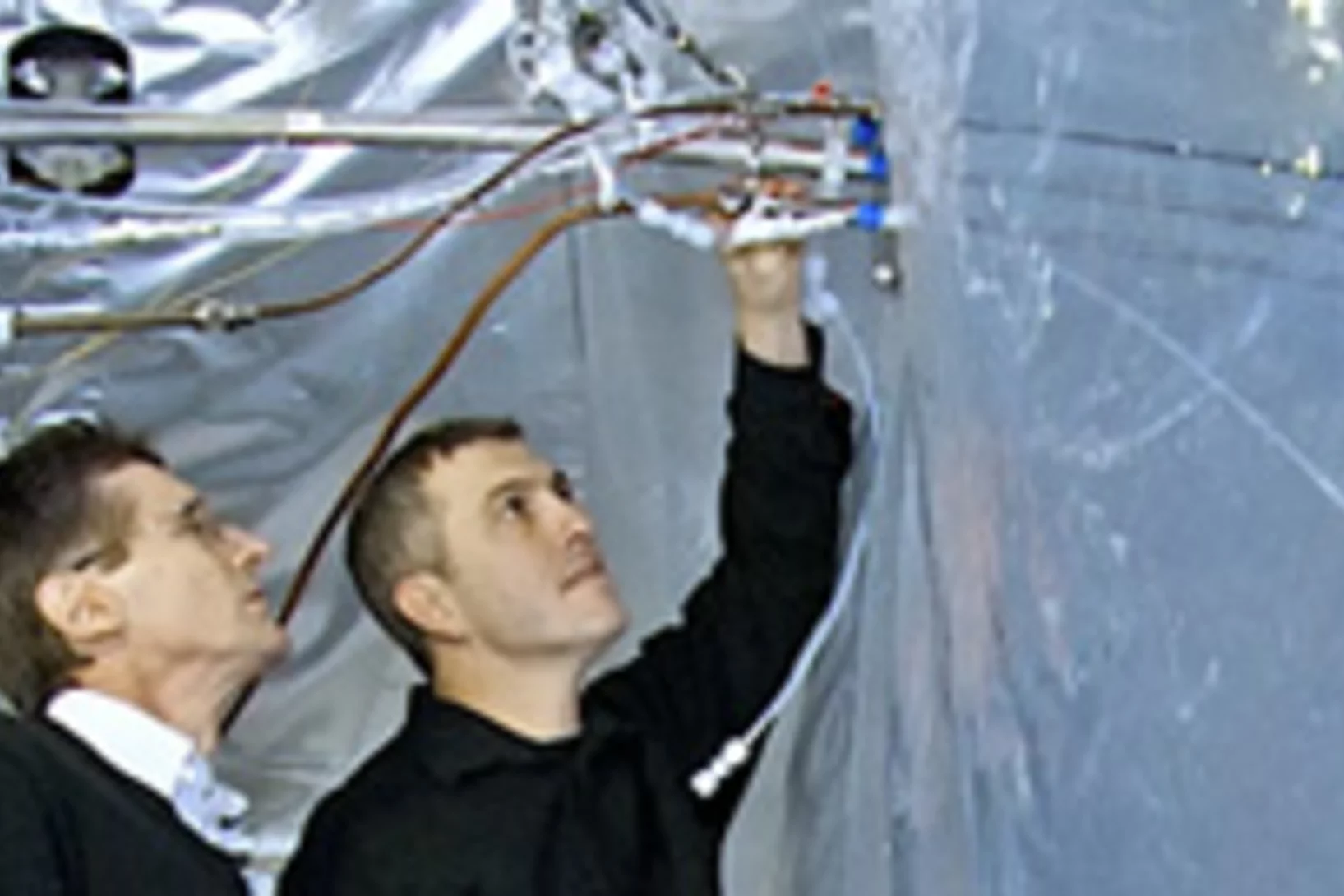Show filters
Les causes du smog à Sarajevo ont été identifiées
Le bois, le charbon et les émanations de cuisine sont les principales sources du smog intense qui règne sur la capitale de Bosnie-Herzégovine. Tel est le résultat d’une campagne globale de mesures mobiles menée par des scientifiques du PSI.
Both natural and human emissions shape cloud formation high above Earth
What happens inside the CLOUD chamber?
Study reveals: Smoke from crop residue burning worsens air pollution in Indian cities
Identifying the main source of air pollution in Indian cities is crucial to reducing the many deaths caused by fine particulate matter (PM₂.₅) – deaths that during the harvest season can account for up to half of all air pollution-related fatalities. An international research team lead by the Paul Scherrer Institute (PSI), funded by the Swiss Agency for Development and Cooperation (SDC) has investigated in detail the sources of the organic components of fine particulate matter in the northern Indian cities of Delhi and Kanpur, located in the Indo-Gangetic Plain. Using novel high-resolution molecular measurement techniques and advanced data analysis, the researchers were able to precisely identify and quantify the sources of organic fine particulate matter.
Les polluants ne se forment souvent que dans l'air
Dans le cadre de l’expérience CLOUD au CERN, des scientifiques du PSI ont mesuré avec une précision jamais atteinte à ce jour comment les polluants atmosphériques organiques se forment et se répartissent.
Preparing the Future of PSI Large Facilities in Atmospheric Research
The Multiphase Chemistry Group in the Laboratory of Atmospheric Chemistry (LAC) looks back to a nearly 20 years record of activities with in situ X-ray photoelectron spectroscopy (XPS) and in situ scanning transmission X-ray spectromicroscopy (STXM) to address key fundamental questions in atmospheric chemistry. This is the time to consider new horizons, align with current and future needs in atmospheric sciences, and to identify novel opportunities driven by upcoming trends in methods, technologies and facilities. This has been the topic of the Workshop ‘X-ray and Neutron Spectroscopy, Scattering and Imaging in Atmospheric Chemistry’, held at PSI 13 – 15 November 2024.
Les sources du smog à Beijing ont été identifiées
Des scientifiques du PSI ont identifié les sources du smog à Beijing. Certaines d’entre elles sont très éloignées de la capitale chinoise.
Comment rendre l’air de New Dehli plus propre?
Des scientifiques du PSI sont sur la piste des aérosols pathogènes en Inde.
L’influence des arbres sur la formation des nuages
Des chercheurs du PSI ont déterminé plus précisément un facteur de la formation des nuages, resté ignoré jusque-là. Leurs travaux pourraient permettre d’améliorer les prévisions climatiques.
La cause de l’extrême pollution atmosphérique nocturne à New Dehli a été élucidée
Des chercheurs du PSI ont découvert ce qui cause la forte pollution atmosphérique nocturne à New Dehli.
Une carte de la pollution par aérosols en Europe peut servir la santé publique
Des chercheurs ont déterminé les sources de pollution particulaire sur 22 sites en Europe.
PSI maintains its leading role in the CLOUD experiment at CERN
The CLOUD experiment at CERN will be recreating particle formation in key regions of the globe to understand the effects of these particles on regional climates
Successful Ambizione Grant Applicant
Kaspar Dällenbach, Scientist at the Laboratory of Atmospheric Chemistry (LAC) at the Paul Scherrer Institute (PSI) was granted the Ambizione Grant 2020 with his project “Particulate air pollution sources in low-income megacities (PRESSING)”.
Successful Ambizione Grant applicant
Patrik Winiger, Research Grant Advisor and Project Manager at ETH Zurich, successfully applied for the Ambizione Grant 2020 with the project “Macromolecular Aerosols in the Cryosphere from the Arctic to the Alps – MACrAA”. The idea was developed together with the Laboratory for Atmospheric Chemistry (LAC) at PSI. The LAC is a global leader in aerosol analytics and source identification. They own and operate a unique laboratory infrastructure with various instruments and multiple aerosol simulation chambers available for researchers.
Formation d’aérosols dans les nuages
Des chercheurs du PSI sont les premiers à montrer comment certaines réactions chimiques dans les nuages peuvent influencer le climat de la planète.
Quelles sont les particules fines les plus dangereuses pour la santé?
La nocivité des particules fines dépend autant de leur composition que de leur quantité. C’est ce que montrent des chercheurs du PSI dans une nouvelle étude. Par ailleurs, des expériences et des modélisations ont montré que c’est surtout dans les agglomérations que la charge de poussières fines nocives pour la santé est particulièrement élevée.
Newly discovered rapid particle growth rates may be the answer to the mystery of aerosol formation in urban smog
Aerosols, suspended particles or droplets, play a key role in Earth’s atmosphere’s energy balance. They can also result in smog formation in cities, which leads to low visibility and serious health risks for the population. A recent study published in Nature outlines a newly discovered mechanism that may play a key role in the continued survival of particles in wintertime smog.
Pour la première fois, des réactions chimiques ont été observées directement dans les particules fines
Des chercheurs de l’Institut Paul Scherrer PSI ont développé une nouvelle méthode pour analyser les particules fines de manière encore plus détaillée. Elle leur a permis de réfuter la doctrine selon laquelle les molécules contenues dans les poussières fines ne subissent plus de réactions chimiques parce qu’elles font partie de la phase condensée.
Gasoline cars produce more carbonaceous particulate matter than modern filter-equipped diesel cars
In contrast to nitrogen oxides, modern gasoline cars emit much more cancerogenic primary soot (black carbon + primary organic aerosol) and lead to more toxic secondary organic aerosol than modern diesel vehicles.
Les substances qui rendent les nuages blancs
Les nuages sont faits de minuscules gouttelettes. Celles-ci se forment lorsque l’eau se condense sur de petites particules en suspension dans l’atmosphère appelées aérosols. Pour mieux comprendre l’apparition des aérosols des chercheurs ont à présent effectué une vaste simulation numérique fondée sur des données expérimentales étendues. Or cette simulation montre qu’outre l’acide sulfurique, deux autres substances jouent un rôle décisif dans l’apparition d’aérosols: certains composés organiques et l’ammoniac. Les résultats de recherche viennent d’être publiés dans Science, la revue spécialisée renommée.
Labile peroxides in secondary organic aerosol
Aerosols, suspended fine liquid or solid particles in the air we breathe, play a central role in many environmental processes through their influence on climate, the hydrological cycle, and their adverse effects on human health. While the mechanisms by which aerosol particles affect our health remain uncertain, the atmospheric oxidation of organic vapors has been shown to be related to the formation of oxygenated organic matter with high oxidative potential, the so-called reactive oxygen species (ROS).
Les mesures d’aujourd’hui renseignent sur les nuages du passé
Des chercheurs ont montré que la poussière fine pouvait se former dans l’atmosphère à partir de substances naturelles. Leurs résultats améliorent significativement nos connaissances sur les nuages de l’ère préindustrielle et ainsi, contribuent à une description plus précise de l’évolution passée et future du climat.
Recognition as 'Highly Cited Researchers'
Two researchers of the Laboratory of Atmospheric Chemistry at PSI were recognized by Thomson Reuters as Highly Cited Researchers 2015. Their published articles rank in the top 1% most cited articles in their subject field for the year of publication.
La poussière fine produite par les moteurs à essence modernes est nocive à nos poumons
Depuis des années, des études prouvent que la poussière fine issue des moteurs à essence a des conséquences sur la santé. Et comme le montrent des chercheurs de l'Université de Berne et de l'Institut Paul Scherrer (PSI), la technologie des moteurs modernes ne remédie pas à ce problème.
Des deux-roues très polluants
Dans certaines villes, la pollution de l’air est due davantage aux petits cyclomoteurs qu’aux voituresDans de nombreuses villes d’Asie, d’Afrique et du Sud de l’Europe, ce ne sont pas les voitures ou les camions, qui représentent la source la plus importante de poussière fine et d’autres polluants atmosphériques, mais les cyclomoteurs à 2 temps. C’est ce que montre l’étude d’une équipe internationale de chercheurs, menée par des scientifiques de l’Institut Paul Scherrer (PSI). Ces émissions élevées sont dues aux caractéristiques de la combustion dans les moteurs à 2 temps, d’autant plus que ces deux-roues sont soumis à des normes d’émissions encore trop peu sévères. Les résultats de l’étude sont publiés le 13.05.2014 dans la revue scientifique Nature Communications.
Expériences au sein du nuage : l’influence de la suie sur le climat
Martin Gysel, chercheur au PSI, se voit remettre un prestigieux subside européen (ERC Consolidator Grant), pour mener des analyses sur le rôle de la suie au niveau de la formation des nuages et du réchauffement de l’atmosphère.
Formation de particules dans l'atmosphère: l'expérience CLOUD au CERN déchiffre un nouveau composant du processus
Les gouttelettes qui forment les nuages se constituent à partir de minuscules particules, qui planent dans l’atmosphère. On ignore encore beaucoup de choses sur la manière dont ces dernières se forment. Récemment, et pour la première fois, on a réussi à déchiffrer la formation de particules à partir d’amines et d’acide sulfurique. Une avancée majeure pour la recherche en sciences atmosphériques.
CCN formation mechanism in lower troposphere needs revision
Atmospheric aerosols exert an important influence on climate1 through their effects on stratiform cloud albedo and lifetime and the invigoration of convective storms. Model calculations suggest that almost half of the global cloud condensation nuclei in the atmospheric boundary layer may originate from the nucleation of aerosols from trace condensable vapours, although the sensitivity of the number of cloud condensation nuclei to changes of nucleation rate may be small. Despite extensive research, fundamental questions remain about the nucleation rate of sulphuric acid particles and the mechanisms responsible, including the roles of galactic cosmic rays and other chemical species such as ammonia. Here we present the first results from the CLOUD experiment at CERN.
Die Massenkonzentration der isländischen Vulkanasche im europäischen Luftraum
Daten des Paul Scherrer Instituts von der Messtation auf dem Jungfraujoch liefern wichtige Erkenntnisse.Die Eruption des isländischen Vulkans Eyjafjallajokull hat das Fliegen in grossen Teilen Europas zum Erliegen gebracht. Die Entscheide beruhten vor allem auf Modellrechnungen. Wie gefährlich ist nun diese Vulkanasche für Flugzeuge?Cette actualité n'existe qu'en anglais et allemand.
Des nouvelles de la chambre à smog: les mécanismes de formation de particules dans l'atmosphère enfin décodés
Jusqu'à présent, la nucléation ou formation de particules dans l'atmosphère restait une énigme. Jusqu'à très récemment, les chercheurs pensaient que l'acide sulfurique était le facteur principal dans la formation des particules. Cependant, les analyses effectuées sur le terrain et en laboratoire ont toujours fourni des résultats contradictoires: on observait que les concentrations en acide sulfurique nécessaires à l'occurrence de la nucléation étaient nettement plus élevées en laboratoire que sur le terrain. Grâce à une expérience menée dans la chambre à smog, les chercheurs de l'Institut Paul Scherrer (PSI) ont trouvé l'origine de ces résultats contradictoires. Leur découverte constitue ainsi une avancée décisive dans la recherche sur le climat.
Une énigme résolue: l'origine de la formation de poussières fines dans l'air
Des chercheurs de l'Institut Paul Scherrer, de l'Université du Colorado et de 29 autres instituts de recherche de différents pays ont étudié la composition des constituants organiques des poussières fines dans différentes régions du monde et ont déterminé à chaque fois les substances à l'origine de leur formation. Ils ont ainsi pu élucider, pour la première fois, le rôle joué par certains composants des gaz d'échappement dans la formation des poussières fines.



